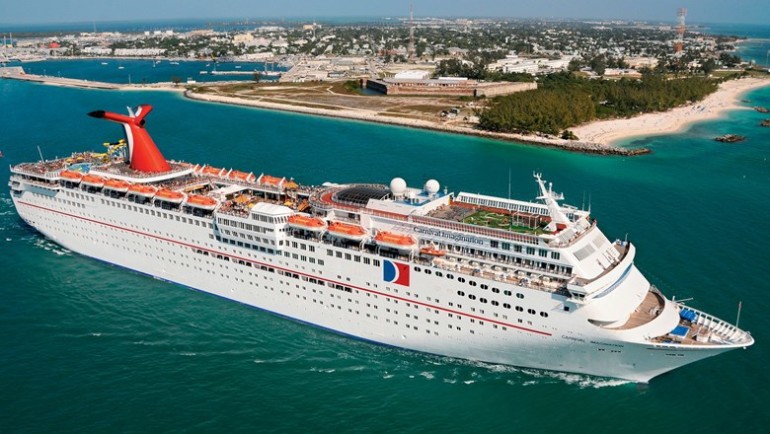Sponsored Listings:
Carnival Corp. will sell off three more ships from its fleet, part of what the company is calling “aggressive action” to be leaner and more efficient.
In a preliminary statement about third-quarter earnings, during which the company expects to lose $1.7 billion, CEO Arnold Donald said, “We continue to take aggressive action to emerge a leaner, more efficient company.
“We are accelerating the exit of 18 less-efficient ships from our fleet. This will generate a 12% reduction in capacity and a structurally lower cost base, while retaining the most cash generative assets in our portfolio.”
Carnival in previous filings said up to 15 ships would be sold from the fleet; eight have already been removed.
Carnival did not indicate which ships would be sold off beyond what it has already earmarked for removal. The additional ships will mean that 18 vessels have left or are expected to leave the fleet this year, representing approximately 12% of Carnival’s capacity before its operations were paused in March, but only 3% of its 2019 operating income, the company said.
Donald asserted the reduction will leave Carnival better-positioned to capitalize on “the pent-up demand for cruise travel, as evidenced by our being at the higher end of historical booking curves for the second half of 2021.”
Carnival reported that cumulative advanced bookings for the second half of 2021 are similar to where they were in 2018 for the second half of 2019. The company said it believes “this demonstrates the long-term potential demand for cruising.” Carnival suggested that bookings in the first half of 2021 were not as strong, saying they reflect expectations “of the phased resumption” and “anticipated itinerary changes.”
Pricing for 2021 is down by mid-single digits versus the second half of 2019, which Carnival said is reflective of the application of future cruise credits (FCC) from previously canceled cruises, which are usually worth 25% more than their value. As of August 31, Carnival said that approximately 45% of passengers had chosen an FCC, while 55% requested refunds. Those numbers had been evenly split through June.
Carnival said that about 55% of bookings taken during the quarter ending August 31 were new, as opposed to FCC rebookings, “despite minimal advertising or marketing.”
Donald added that Carnival’s Italian brand, Costa Cruises, had “successfully completed” its first cruise since the global cruise pause, and that German-sourced brand Aida would also soon launch cruises. He said that many of Carnival’s nine brands source from regional markets, “which clearly position us well for a staggered return to service in the current environment.”
He also asserted that in this climate, leisure travel would bounce back before business travel. “Our business relies solely on leisure travel, which we believe has historically proven to be far more resilient than business travel and cannot be easily replaced with video conferencing and other means of technology,” he said.
Ship delivery slowdown
Carnival also said it was slowing down its new-ship delivery schedule. The company expects to only take delivery of two of the four ships originally scheduled to enter service in fiscal 2020 and only five of the nine ships originally scheduled for delivery by the end of fiscal 2021. Carnival said that of the 13 ships scheduled for delivery through 2022, it now expects to take delivery of 11. Of those, nine will be traditional cruise ships and two will be expedition-style vessels.
“We will emerge with a more efficient fleet, with a stretched-out newbuild orderbook and having paused new ship orders, leaving us with no deliveries in 2024 and only one delivery in 2025, allowing us to pay down debt and create increasing value for our shareholders,” Donald said.
Carnival Corp. CFO David Bernstein said that the company has more than $8 billion of available cash and additional financing alternatives, if it needs to further improve its liquidity profile. It reported that since March, the company has raised nearly $12 billion through a series of financing transactions.
Source: travelweekly.com










